Frankie Goes to Hollywood - Interview with Paul Rutherford
by Paul Waller
published: 24 / 3 / 2013
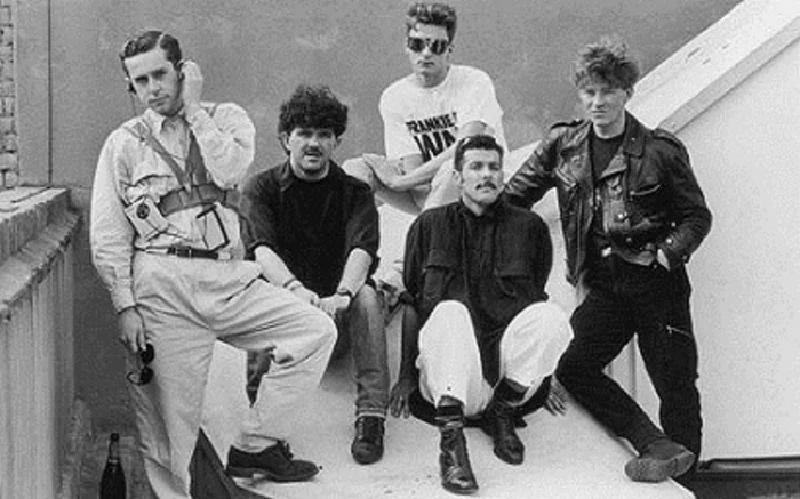
intro
Paul Waller talks to Frankie Goes To Hollywood vocalist and dancer Paul Rutherford about his influential and controversial group and also his solo career
In 1983 Frankie Goes To Hollywood burst into the pop charts with their single ‘Relax’. Not only did it make number one but it was infamously banned by Radio One DJ Mike Read, which propelled the group into the headlines in a way that hadn’t been seen on British soil since they glory days of punk and the filth and the fury of the Sex Pistols. The band’s overtly homosexual image and hedonistic videos led them into a notorious run of hit singles that captured the very zeitgeist of the 80s. ‘Two Tribes’ followed ‘Relax’ and the Christmas single ‘The Power of Love’ quickly became the bands third successive number one single after that. After the band’s LP ‘Welcome to the Pleasuredome’ reached the top spot, Frankie lost a little of their spark and their second album, ‘Liverpool’, although a reasonable success, didn’t reap the same rewards as its predecessor. As with most bands, when the bright flame dims tensions arise within the group’s dynamic and things tend to fall apart. It had happened a hundred times before and has a hundred times since, Frankie Goes To Hollywood were not immune and the group dissolved. Pennyblackmusic caught up with backing vocalist, dancer and occasional keyboard player Paul Rutherford as he arrived in Liverpool to chew the fat about the heyday of his time in the band, his plans for the future and of course his first musical love, David Bowie. PB: By all accounts you live a happy life in New Zealand now. Apart from doing this one off PA in Liverpool what has brought you back to freezing cold England? You have just been caught up in the snow, right? PR: You know what; I’m now sat here with a pint of cider in front of me so I’m a happy boy. But I am here literally for two weeks and it’s solely to do this, although the David Bowie exhibition at the V&A made it doubly sweet and the fare was paid for. PB: I can’t wait to see it myself. PR: It is amazing, absolutely amazing, I cried actually and my life flashed before my eyes. That 13 year old boy that discovered Ziggy Stardust was there again. Amongst his shoes and things that I had seen while growing up was the lyrics to ‘Starman’. It was fucking nuts, and I swear I had a real moment. A friend of mine got me in for free because she was a member of the V&A museum, so I went to the front of the queue and then I cried (Laughs). It was a beautiful day, so fantastic and I want to go back now and have a little mooch around on me own. You will love it. It is so clever, and it is one of the best exhibitions I’ve seen. It’s all done with pressure pads so when you stand on it ‘Space Oddity’ will then come out at you on a screen; oh, it’s just fucking mind blowing. PB: I’m going with my wife and she’s going mainly to see anything to do with ‘Labyrinth’. PR: Really? That’s the weakest part of it. That is like the empty room. There are bits from the film there but it’s not the music room, it’s not ‘Heroes’, it’s not the Berlin room. I tell you people were leaving the exhibition shaking their heads in disbelief and singing the songs. I left singing ‘The Jean Genie’ and ‘Rock ‘n’ Roll Suicide’. Fuck me, it was amazing. You will die. Anyway, Less about him, more about me . PB: Okay, if I can I want to start at the beginning of your musical career. You were in the punk group the Spitfire Boys in your late teens. What was harder for you at the time; being a punk or being openly gay in Liverpool in the late 70s? PR: I saw it as a sort of ticket to ride really, being gay and punk. I didn’t fit in at school. I found that quite hard but by eighteen it wasn’t tough at all. It gave me wings in a way, and I just ran with it. I didn’t even think about it, I never felt weak. It felt like I had landed. I found it quite easy to hang around with these people and pretend like I was a musician. I even felt like I was pretending when I was in the band and signing a record deal. Every label wanted to have a punk band at the time, and we were lucky enough to have Decca Records offer us a big one, even though we only managed to get one record out. The punk thing just died out a year later, maybe two years but it made me feel like I had arrived. PB: So there was a gap between the Spitfire Boys and Frankie Goes To Hollywood then? PR: Well after the Spitfire Boys I managed to get a few bands together and I was a singer for other people, just generally having a laugh really. After that I decided I wanted to live in America for a while, in San Francisco because my sister lived two hours south of there. The gay gene had won the battle at that moment and I filled my boots if you know what I mean. I got into disco music, and that’s what we tried to and ended up doing with Frankie quite successfully. PB: When you joined Frankie Goes To Hollywood, you arrived late in the game. I believe, you were not a founding member. PR: The nucleus was Holly (Johnson, vocals-Ed), Ped (Peter Gill, drums-Ed), Mark (O’Toole, bass-Ed) and Jed (O’Toole, guitar-Ed) at that moment and they had three songs or something. I came back from the States and because me and Holly were best mates he was saying, “You have to come and see the band, we’re great” and all that, so I just started singing with them and I really enjoyed it. We played for about nine hours that day. We just went on and on and it sounded great. Thing is I’d got this gig with Hambi And The Dance, and they had just signed a record deal with Virgin which happened to be the biggest record deal anyone had signed from Liverpool at that point. and I think the biggest deal Virgin had been involved with back then too. So I did this European tour for them as a backing vocalist. and I said to Holly “Get your act together and I can get you at the very least on this Liverpool show as support,” and he did. I got up on stage with Frankie that night. PB: Speaking of contracts, due to Holly’s successful lawsuit against the infamously mean Frankie Goes To Hollywood contract with ZTT the contract itself has become the stuff of legend. Do you remember signing it? PR: Yeah! (Laughs) After that rehearsal, we had decided that this was the band now. We had decided this was the sort of band we are going to be, the songs were together and this was what songs we are going to play, so all that was sorted, and we were getting out of it and having a laugh, though there was lots of hedonism. PB: I’ve seen the early footage; it must have appealed to labels? PR: Everything good just seemed to converge. Every utter ingredient was right; we couldn’t understand why people weren’t signing us at first because we were amazing. Labels were saying we love you, but we can’t sign you because you’re gay and you’re too racy. We got burdened with that kind of shit. But we had amazing people that wanted to produce us. There was Brian Eno, Kate Bush or Trevor Horn. We chose Trevor Horn. I wonder what would have happened if we had gone with Kate Bush. She was mad. We would have been at the bottom of the charts. PB: For a period in the 80s Frankie Goes To Hollywood could do no wrong at all. Number one singles came with every release. There was a number one album as well. Even when Mike Read banned ‘Relax’, the song continued to climb the charts. PR: It all made sense to us, even that. We had this kind of bravado and just sailed through it. We just thought, “Whatever, it’s not going to fucking stop us,” and it didn’t. It gave us wings. It was like the punk thing which by then had died on its arse. It got pretty dirty. No one was wearing make-up. It just felt dirty again and more real. PB: The Frankie Goes To Hollywood experience seemed incredibly intense from an outside point of view. One moment you just appeared as if from nowhere and you didn’t leave the headlines for two solid years. Was there ever a moment during this meteoric rise where you had a period to just think, “Wow, we’ve done it”? PR: Yeah, when we split up (Laughs). There was no time at all to take stock of what had happened. We would wake up to do thirty interviews, and then we would need to be on a plane to get to Paris tomorrow to collect some award or whatever. It became this thing that was an absolute constant. It did not stop. It was quite mad… it was genius really. But then it did end and it still felt great, like, wow it’s all over but what we did, how brilliant was that and then a year later it was like… Oh fuck, what have we done? It dawned on me that we had just abused probably the greatest gift that you could ever get. PB: Was there anything from your time in the group that you wish you had done differently? PR: Kind of, I wish we had somebody around us that could have made sense of it all and kept us together. You know, just an adult. The thing is most of the adults we employed were getting just as fucked as we were. It was very, very, very rock ‘n’ roll. They were just as bad as us and couldn’t believe their luck either. They couldn’t believe that we could just walk into a city, and would bring it to its knees, and they would give us literally anything we wanted. It was really quite bad with private jets and helicopters here there and everywhere. It was nuts. Don’t get me wrong! It was really wonderful but the thing is no one had the brains to keep it together. It started to eat and gnaw at us and business wasn’t being taken care of. No one sat us down and said, “Come on, let’s weigh these things up. Let’s sort out a plan that will make this work for everyone”. There was so much money at stake. Holly wasn’t very happy with that, I think he had trouble making sense out of that because for him they were his lyrics and he was the frontman; he had people sticking microphones in front of his face all the time. He had a hard time of it. PB: So, in 1989, after the demise of Frankie you released your solo album, ‘Oh World’. You must have had a lot more artistic control with that project, but it wasn’t the greatest of times for you. Do you look fondly on that time of your life at all? PR: No, no I don’t. I was going through such a big personal downer at that time. My partner died during my planned solo career so I disappeared for a while because I thought it was more important for him. He died due to AIDS complications. It was really quite hard to deal with and took five years out of my life. I made the ‘Oh World’ album during the middle of all this, so when you listen to it now you can hear where a lot of the music comes from in a way. I wasn’t turning up for stuff and the record company was getting really cheesed with me. I spent a lot of time in hospitals, and it just got all too much for me. There were bigger things going on as well that I can’t really tell you about but they knew. I thought I was wasting their time, my time and worst of all his time which was more precious than anything. PB: It’s understandable, without a doubt. PR: But some people can deal with that sort of situation. I now see it as sort of a gift in a way; I stepped up. At the time I stood up for gay rights so much... (Pauses). So I can see it now as a good thing for me. It turned me into a better person, I think. PB: So have you been writing recently? PR: There were the tracks left off the solo thing so I decided to redo them. One of them has a choir and an orchestra on it. Yeah, I would say they are more soulful songs, the most soulful stuff that I have ever written, ballads. It makes sense with my age. It is my opus. I absolutely know it. The people I have played it to have literally wept. PB: Is there a time frame for this project? PR: Hmm, it’s all about money. I haven’t got a record deal, not that anyone one has record deals now. I was supposed to sign back with Trevor Horn for it. He picked it up and I thought if Trevor does that I could have a worldwide fucking hit. He said it was the best thing he’d heard in ages, but then it got down to the business side of everything, and I just thought I can’t go down that road again. They tried to boss me around thinking I’m still sixteen or whatever. I can’t go backwards instead of forwards. But I’ve gone through so much, and this is the most revolutionary thing I have ever written. I know it is outstanding. I’ve lived with it so long. It fucking is…I know it is. PB: Thank you.
Picture Gallery:-
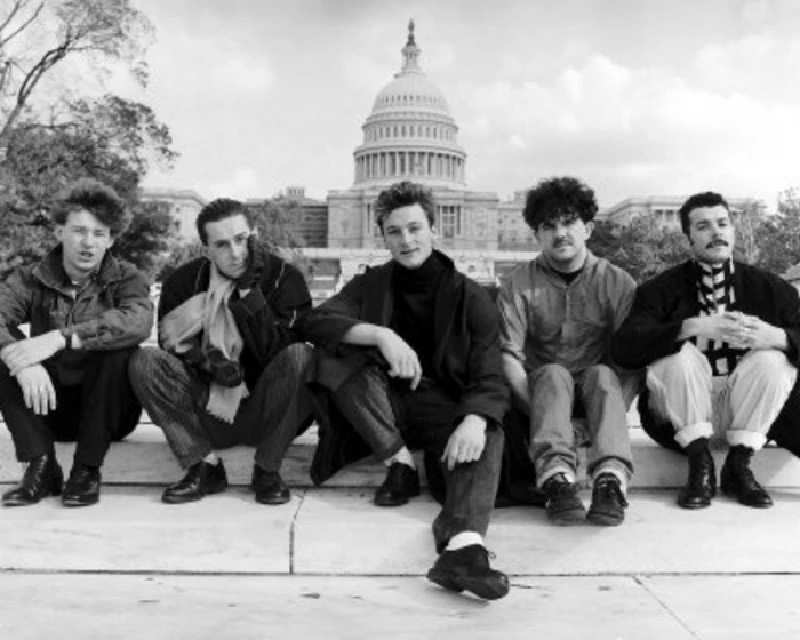
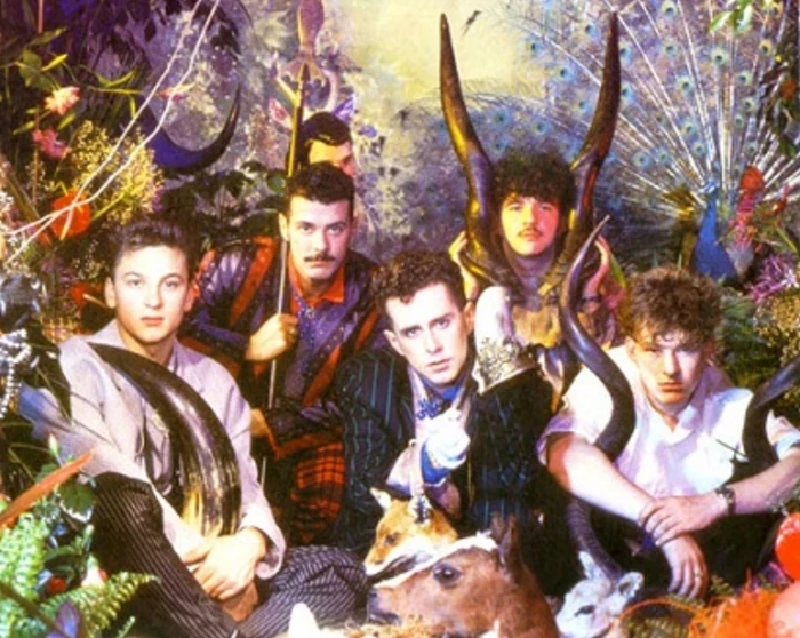
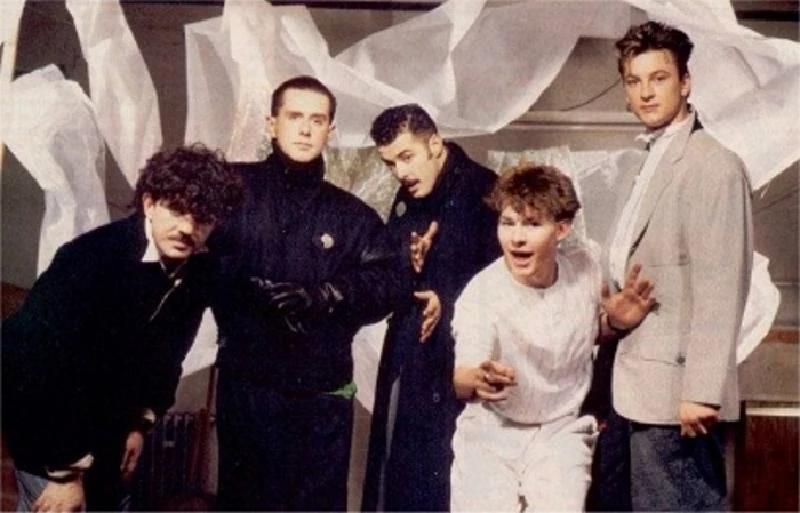
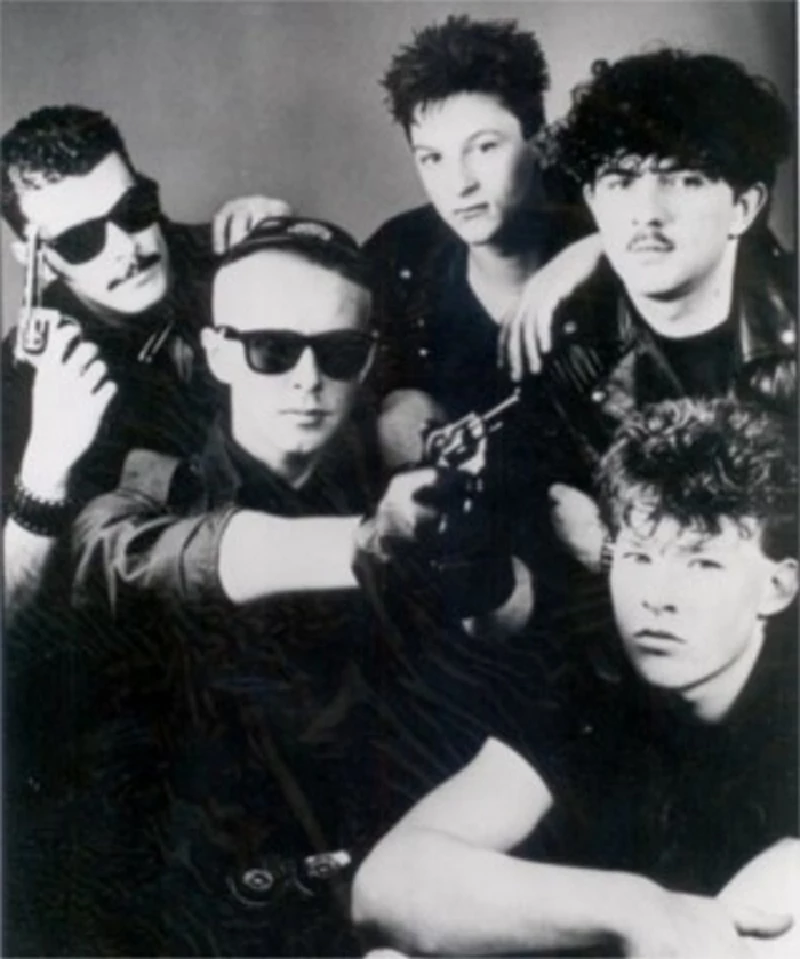
Visitor Comments:- |
| 654 Posted By: sara brown, manchester on 04 Oct 2013 |
|
good interview
i never forgave mike read for banning relax live on radio 1
|
interviews |
|
Interview (2012) |

|
| Anthony Strutt speaks to Brian Nash, the guitarist with the controversial Frankie Goes To Hollywood, about his years in the 80's group and recent autobiography |
favourite album |
|
Liverpool (2011) |
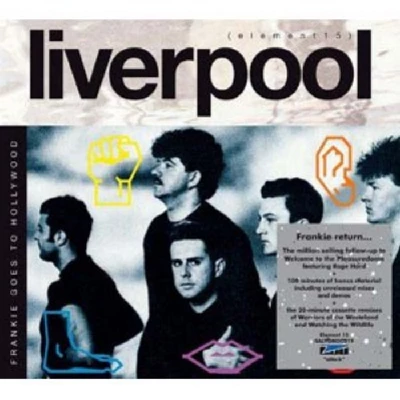
|
| In our 'Re:View' column, in which our writers reflect on albums from the past, Fiona Hutchings examines Frankie Goes to Hollywood's 1986 second album, 'Liverpool', which split critics upon its release and has just been re-released in a double CD reissue |
| Welcome to the Pleasuredome (2010) |
most viewed articles
current edition
Carl Ewens - David Bowie 1964 to 1982 On Track: Every Album, Every SongArmory Show - Interview with Richard Jobson
Bathers - Photoscapes 1
Visor Fest - Valencia, Spain, 26/9/2025...27/9/2025
Colin Blunstone - Thalia Hall, Chicago, 16/7/2025
Billie Eilish - O2 Arena, London, 10/7/2025
John McKay - Interview
Robert Forster - Interview
Loft - Interview
Sir Tim Rice - Interview
previous editions
Heavenly - P.U.N.K. Girl EPManic Street Preachers - (Gig of a Lifetime) Millennium Stadium, Cardiff, December 1999
Oasis - Oasis, Earl's Court, London, 1995
Beautiful South - Ten Songs That Made Me Love...
Trudie Myerscough-Harris - Interview
Pixies - Ten Songs That Made Me Love...
Paul Clerehugh - Interview
Doris Brendel - Interview
Prolapse - Interview
Simon Heavisides - Destiny Stopped Screaming: The Life and Times of Adrian Borland
most viewed reviews
current edition
Amy Macdonald - Is This What You've Been Waiting For?Sick Man of Europe - The Sick Man of Europe
Phew, Erika Kobayashi,, Dieter Moebius - Radium Girls
Alice Cooper - The Revenge of Alice Cooper
Davey Woodward - Mumbo in the Jumbo
Lucy Spraggan - Other Sides of the Moon
Blueboy - 2
Cynthia Erivo - I Forgive You
Vinny Peculiar - Things Too Long Left Unsaid
Philip Jeays - Victoria
related articles |
|
Holly Johnson: Interview (2014 |
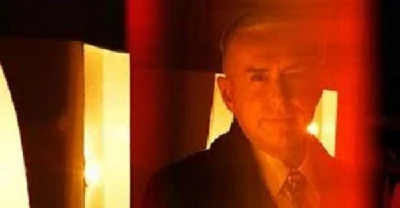
|
| Ex-Frankie Goes To Hollywood front man Holly Johnson speaks to John Clarkson about ‘Europa’, his first solo studio album in fifteen years |
Pennyblackmusic Regular Contributors
Adrian Janes
Amanda J. Window
Andrew Twambley
Anthony Dhanendran
Benjamin Howarth
Cila Warncke
Daniel Cressey
Darren Aston
Dastardly
Dave Goodwin
Denzil Watson
Dominic B. Simpson
Eoghan Lyng
Fiona Hutchings
Harry Sherriff
Helen Tipping
Jamie Rowland
John Clarkson
Julie Cruickshank
Kimberly Bright
Lisa Torem
Maarten Schiethart